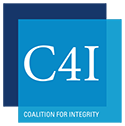Progress from G8 leaders on transparency, anti-corruption (FCPA Blog)
June 18, 2013The G8 countries have endorsed an action plan of core principles to prevent the misuse of anonymous corporations. Read more
Opportunities for Transparency: Will the G8 Act? (FCPA Blog)
June 17, 2013In the vast majority of 150 grand corruption cases, corporate vehicles were misused to conceal the identities of public officials involved in corruption. These reports underline both the significance of the problem and also the potential cost to development. Resource-rich countries in Africa and elsewhere have similar stories and comparable governance issues. Similarly, companies that extract natural resources also share some responsibility for transparent practices. The summit in Northern Ireland represents an important opportunity for G8 leaders to make meaningful progress in promoting transparency in the beneficial ownership of companies and extractive resources. Read more
A case for more integrity in the financial sector (Devex Blog)
January 17, 2013Many countries have established laws, regulations and procedures to prevent money laundering. In the United States, for example, financial institutions have an obligation to file suspicious transaction reports, conduct customer due diligence and engage in anti-money laundering, or AML, compliance. However, as a recent World Bank report highlights, in many countries, both developing and developed, including in the United States, there are still significant loopholes allowing corrupt individuals to launder and ultimately enjoy their illegally obtained gains. Read more
The 2012 Corruption Perceptions Index (FCPA Blog)
December 5, 2012Transparency International released its 2012 Corruption Perceptions Index (CPI) today, suggesting that levels of bribery, abuse of power, and secret dealings are still perceived to be very high in most countries. Read more
How Not to Fall Foul of the Foreign Corrupt Practices Act (Transparency International Blog)
November 16, 2012The Department of Justice and the Securities and Exchange Commission published their long-awaited guidance intended to provide useful information to companies to comply with the Foreign Corrupt Practices Act (FCPA). TI-USA’s President and CEO Claudia Dumas welcomed the release of the publication and hoped “the Guide will be useful to companies who wish to do honest business abroad.” Read more
Country Enforcement of the OECD Anti-Bribery Convention – Progress Report 2012 (FCPA Blog)
September 6, 2012Transparency International’s (TI) eighth annual progress report on the enforcement of the OECD Anti-Bribery Convention highlights a couple of notable developments. One is that there was a substantial increase in the number of cases brought by countries in the active enforcement category. However, while some countries increased their enforcement, only seven countries out of 37 reviewed made the list of active enforcers. This number has not changed since 2009. Read more
Civil Society Procurement Monitoring: Challenges and Opportunities (in Eduardo Bohorquez and Deniz Devrim: A New Role for Citizens in public Procurement)
August 4, 2012The article aims to provide a general overview of the involvement of civil society organizations and citizens in public procurement. Read more pg 41
Pushing Forward G8’s Anti-Corruption Agenda (Huffington Post)
July 14, 2012In India more than 200 million people live without secure access to food, the most of any county in the world, the Wall Street Journal reported last month. And according to the Wall Street Journal report, corruption and inefficiency are among the main reasons why infrastructure in India is lagging behind, thus slowing down investments that could help feed millions. As leaders of the G8 convene at Camp David, it is imperative they take corruption into account. Read More
G20 and Anti-Corruption: Progress Continues (FCPA Blog)
June 22, 2012On Tuesday, G20 leaders released their communiqué following the G20 summit in Los Cabos, Mexico. The leaders have extended the mandate of the Anti-Corruption Working Group by two years, through the end of 2014. This is an encouraging step by the group as it demonstrates a renewed commitment to focus on anti-corruption, even as the leaders seek to address pressing global economic concerns. Read More
Co-written by James Pagano, TI-USA intern for the summer of 2012.
The SEC’s Tricky Balancing Act (FCPA Blog)
November 8, 2010The legislative intent behind the provisions of the Dodd-Frank Act is to create incentives to report wrongdoing and protect whistleblowers. These objectives, while laudable, present a significant regulatory challenge. Read more

